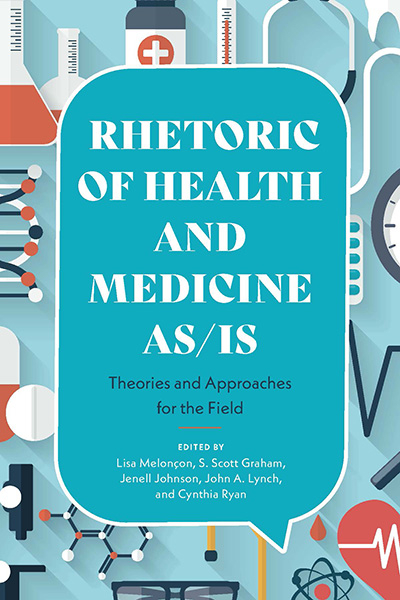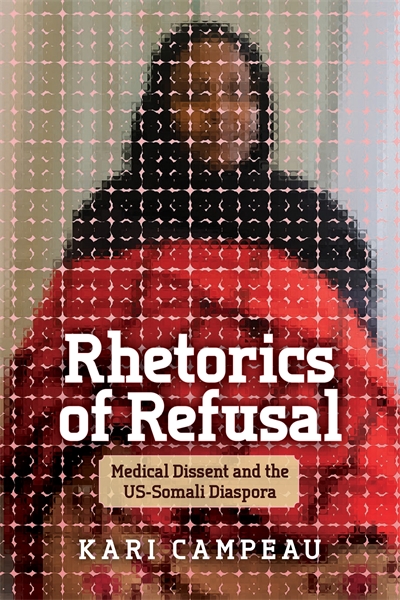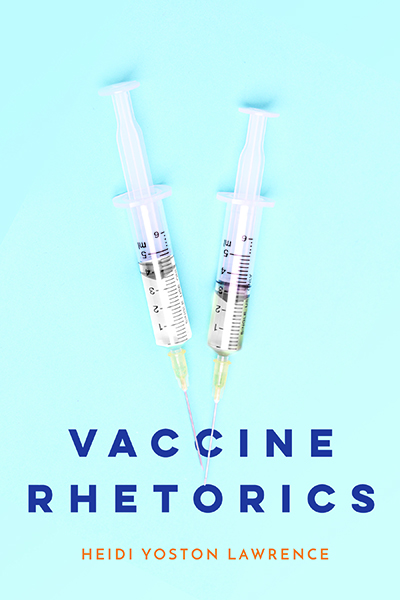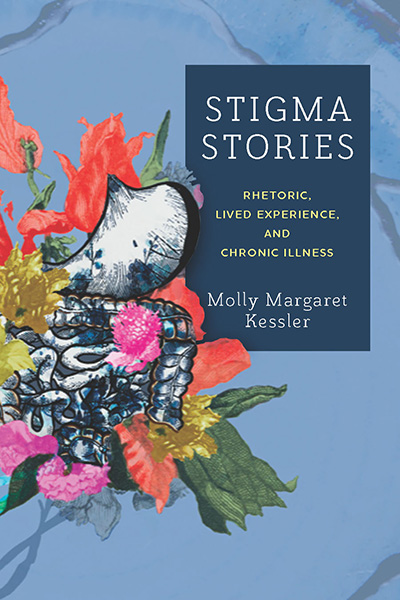“Campeau’s theory of refusal is generative, agentic, and future-oriented, offering a tangible contribution of rhetoric into the practice of public health, medicine, and our daily, medicalized lives. Rhetorics of Refusal intervenes into current discourses that perpetuate frames of stigma and ignorance around medical refusal.” —Heidi Yoston Lawrence, author of Vaccine Rhetorics
“Rhetorics of Refusal demonstrates Campeau’s commitment to ‘citational justice’ by drawing on extensive ethnographic material, as well as scholarship in rhetoric, health humanities, and disability studies. Her methodology broadens conclusions scholars can draw about how individuals navigate health information and decision-making.” —Jordynn Jack, author of Raveling the Brain: Toward a Transdisciplinary Neurorhetoric
Rhetorics of Refusal focuses on a recent public health crisis—Minnesota’s 2017 measles outbreak—to recast vaccine refusals less as products of poor health literacy or disinformation but as strategic and generative acts of noncompliance. The outbreak, which primarily affected unvaccinated Somali children, occurred at the nexus of declining vaccination rates, spiking autism concerns, antivaccination predation, and a fraying public health infrastructure. However, during a year-long ethnographic study at a Somali health center, Kari Campeau found that personal stories from parents offered a much different picture of vaccine refusal than the one painted by news media.
Tracking refusals across four sites, Campeau argues for the importance of approaching refusals as rhetorical and participatory strategies that hold institutions accountable, press for change, and practice care within emergent biosocial communities. Moreover, she views refusal as necessary and potentially transformative in situations where refusers have little access to power or platform. By contextualizing refusals in longer cultural and political histories, Campeau unsettles traditional narratives of medical dissent while offering new entry points into discussions on racialized biopolitics, care, disability, and public health.
Kari Campeau is Assistant Professor of English at the University of Colorado Denver.
Contents
Contents
Acknowledgments
Introduction
Explaining (Away) “No”: Studying Dissent in Medicine and the Humanities
Rhetorical Refusal
The Study, Site, and Methods
About Autism
Review of the Chapters
Chapter 1 Welcome to Health Class: Community Sickness as Rhetorical Refusal’s Fertile Ground
A New Health Literacy Course: Preparation, Delivery, Evaluation, and Tensions
Five Discourses of Autism as Community Sickness
Rhetorical Refusal through Wrong Discourses
Community Sickness as Rhetorical Refusal’s Fertile Ground
Conclusion
Chapter 2 Outbreak: Vaccine Dissent as Embodied Rhetorical Refusal
Historical Vaccine Frames and the Rise of the Racialized Wrong-Belief Frame
Somali Stories of the Minnesota Measles Outbreak
Tracing Rhetorical Refusal’s Arc through Vaccine Dissent
Conclusion
Chapter 3 Writing to the State: Mistakes and Silences as Rhetorical Refusal
Public Assistance: Diaspora Visions and Resettled Realities
The Paperwork: Outreach Materials, the Grant Application, and a Consumer-Directed Model of Care
Rhetorical Refusals through Mistakes, Silences, and Departures
Rhetorical Refusal in Institutional Documentation
Conclusion
Chapter 4 The Persuasive Microbiome: Rhetorical Refusal through Care
Who Is the Microbiome For? Popular and Scientific Discourses of the Microbiome
Nasra’s Story
Five Topoi across Microbiome Stories
Following Refusal’s Arc: The Microbiome’s Health Futures
A Five-Topoi Framework for Listening to Medical Dissent as Rhetorical Refusal
Conclusion
Conclusion
References
Index
Related Titles:

Rhetoric of Health and Medicine As/Is
Theories and Approaches for the Field
Edited by Lisa Melonçon, S. Scott Graham, Jenell Johnson, John A. Lynch, and Cynthia Ryan




